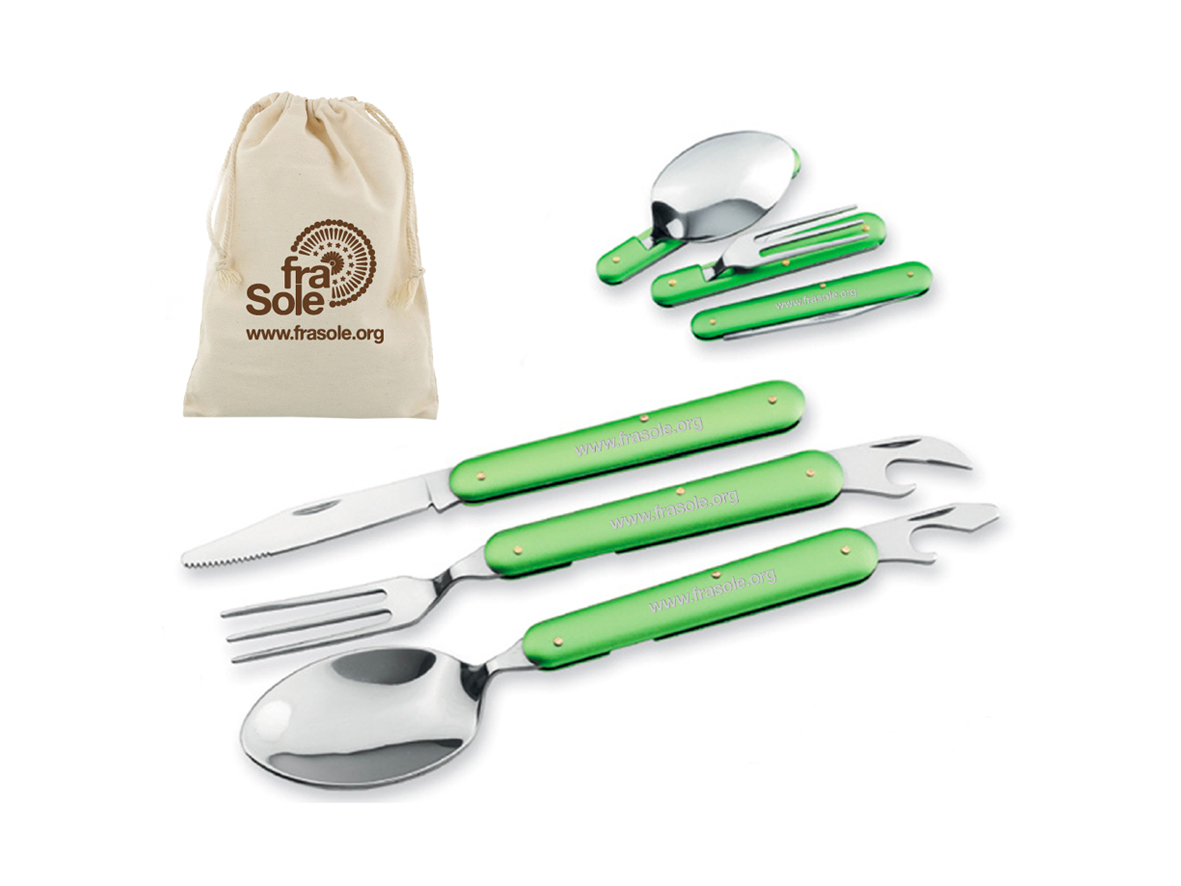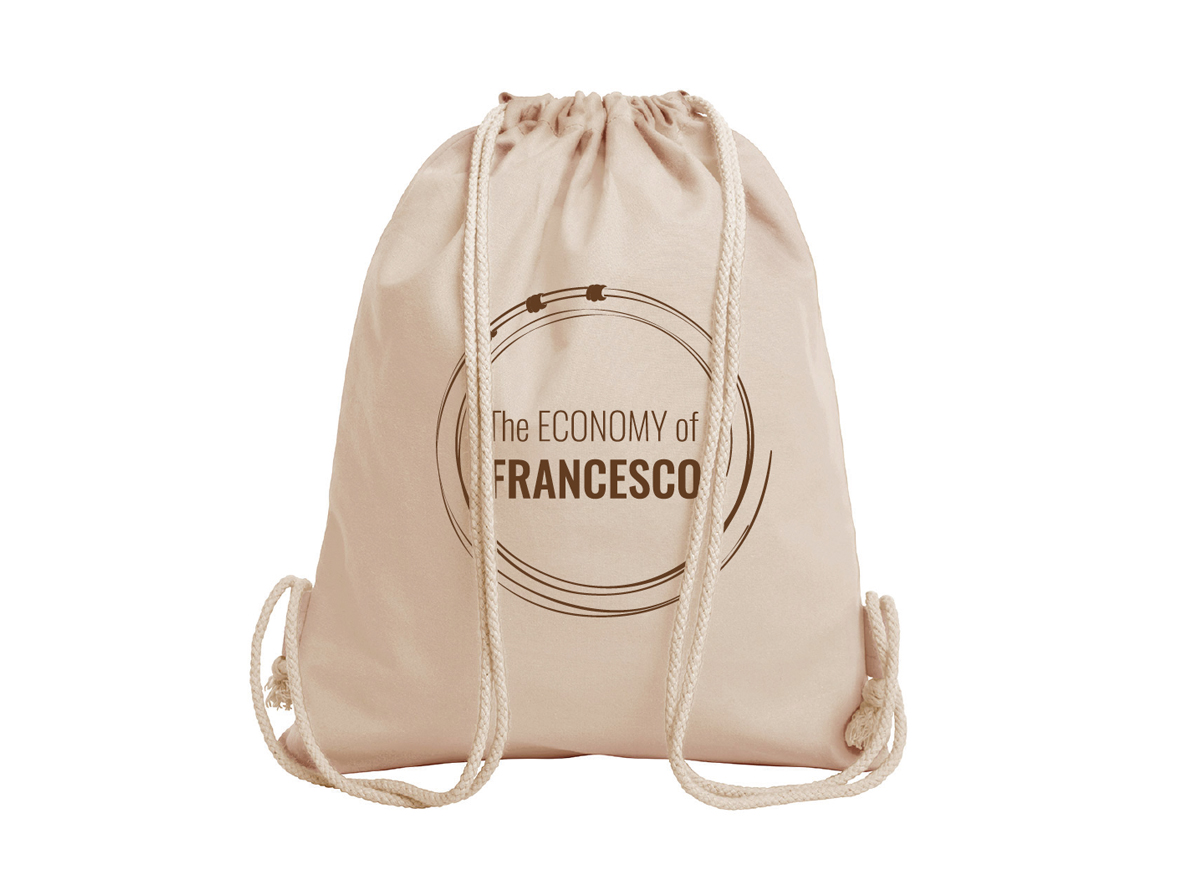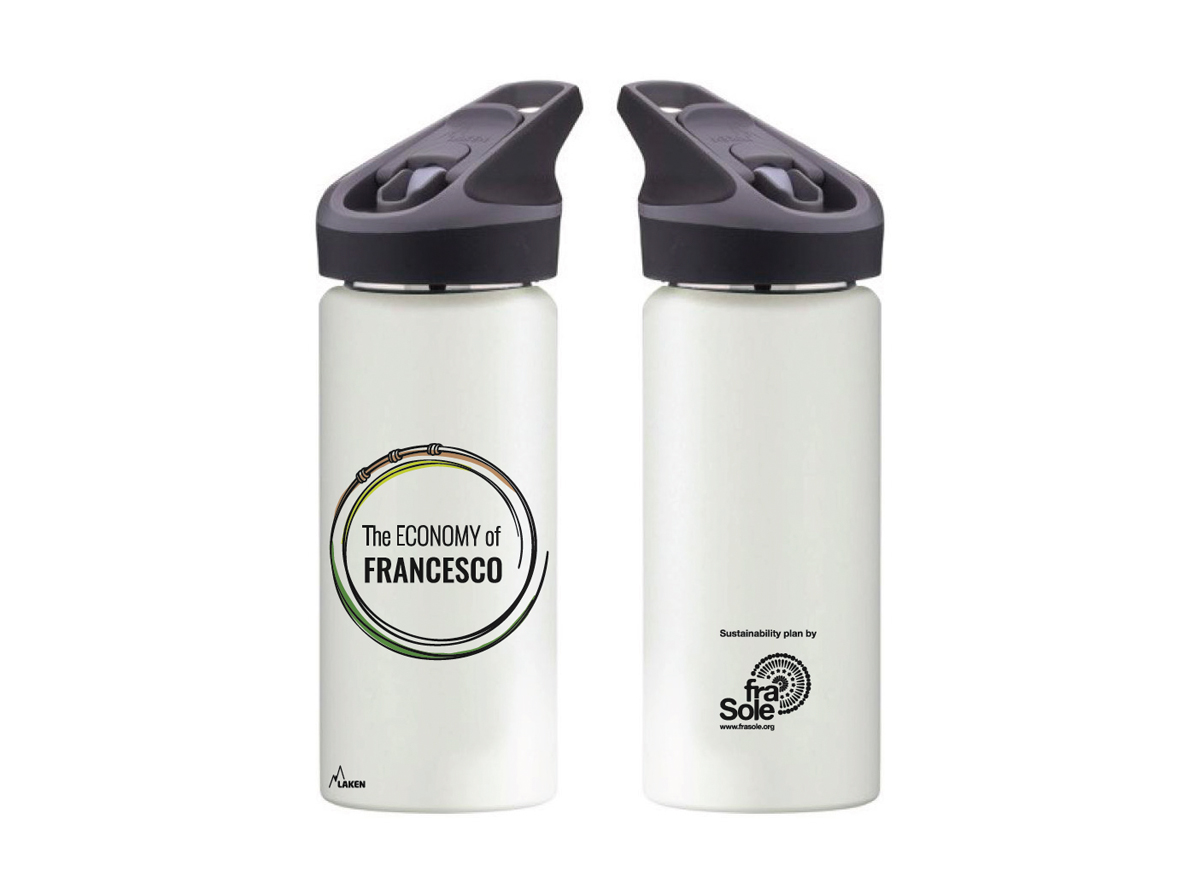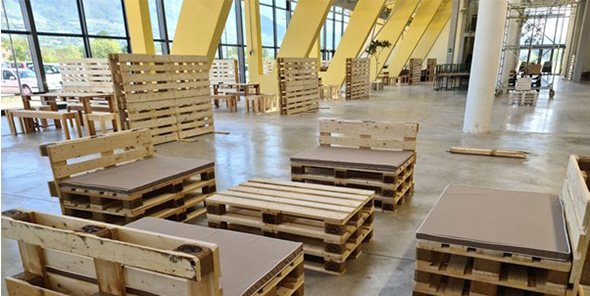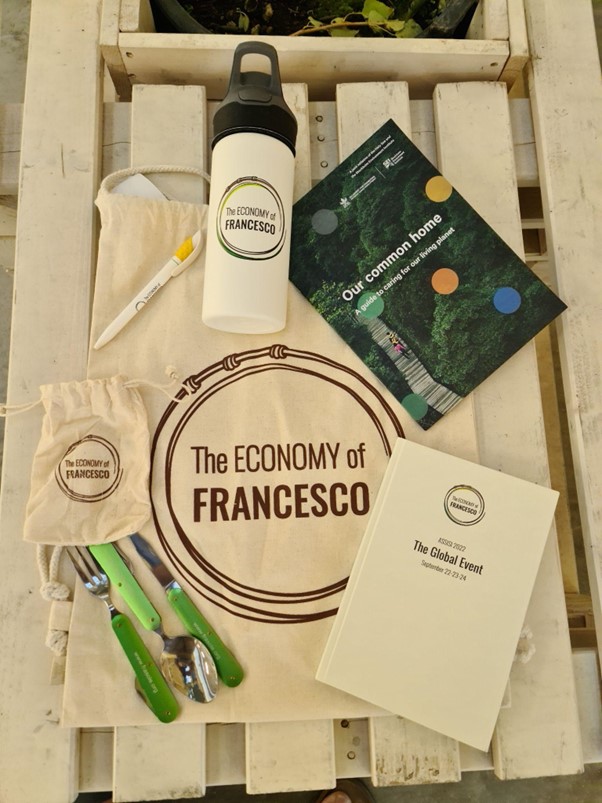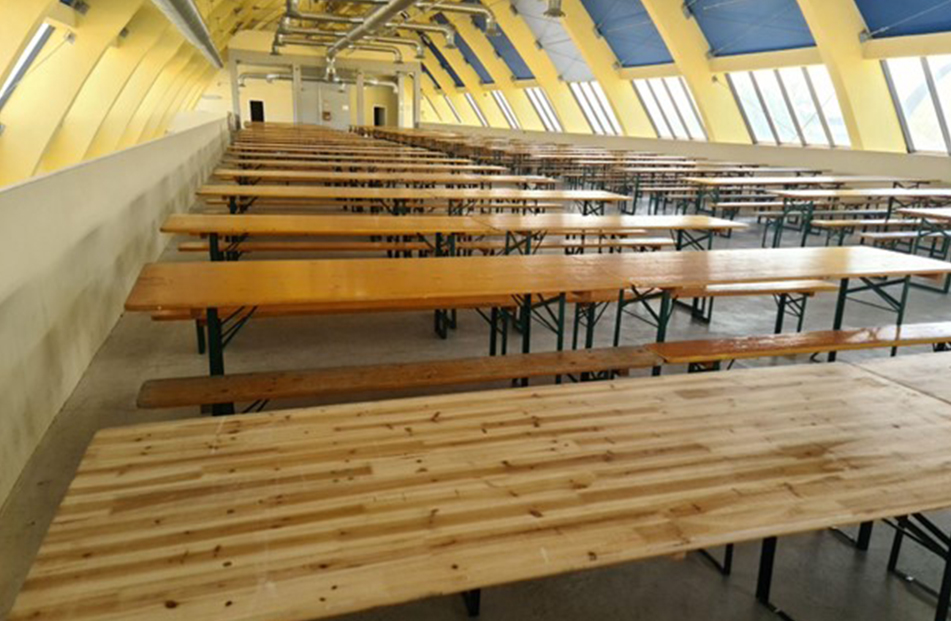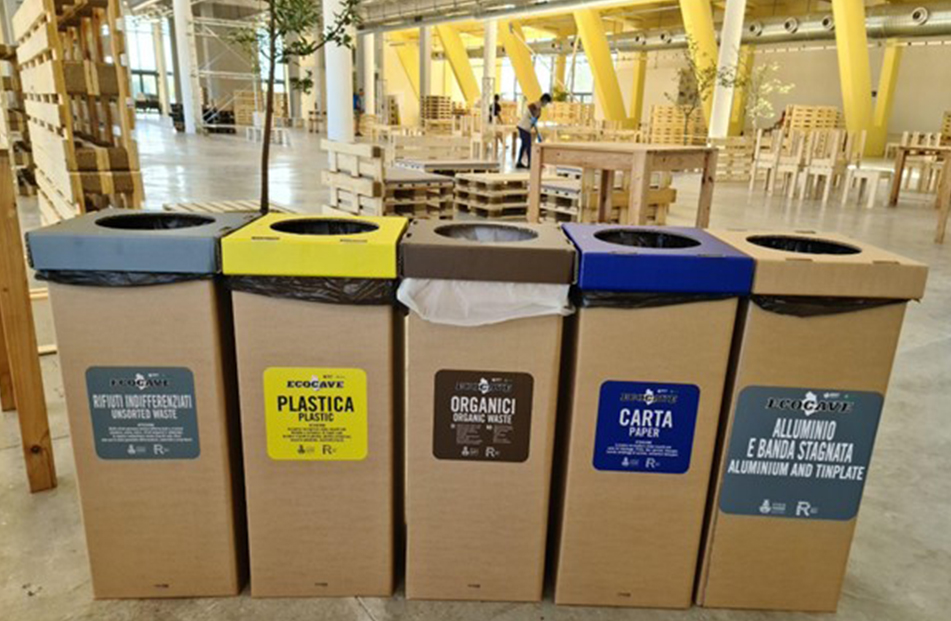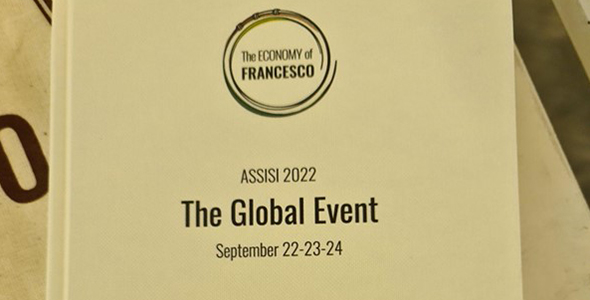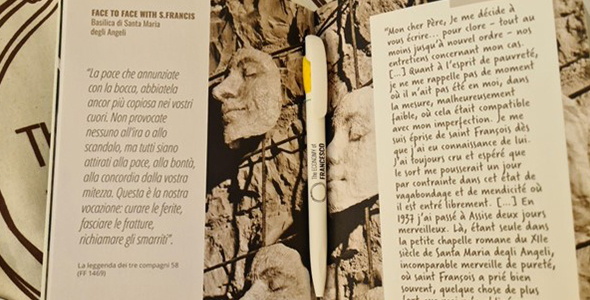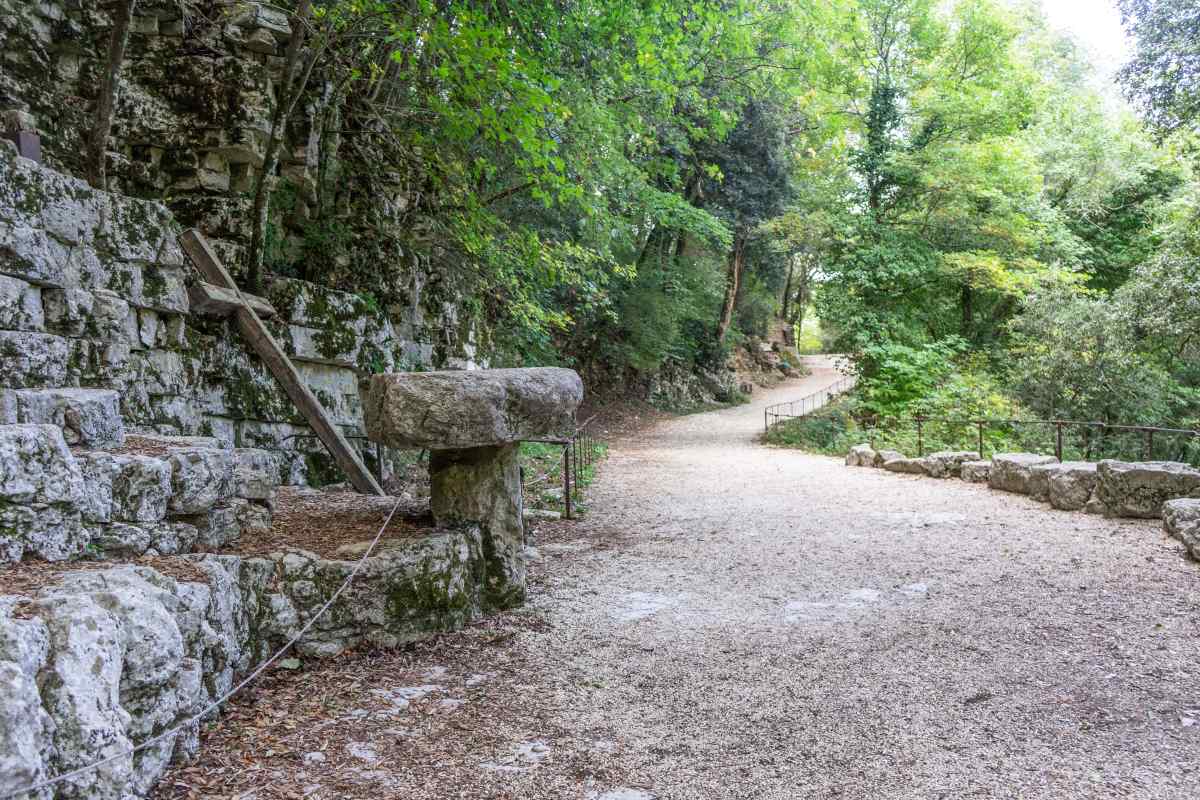THE ECONOMY OF FRANCESCO:
AN EVENT DEDICATED TO THE CARE OF CREATION
Organizing a complex event necessarily involves choices, often motivated by purely economic choices. Events always have their impacts on the surrounding environment, and we considered it our responsibility to try to reduce them, even before asking participants for responsible behavior.
To enhance this commitment, the Organizing Committee of The Economy of Francesco chose to highlight the experience of Sisifo srl Società Benefit, by implementing a number of actions aimed at the realization of an environmentally, socially and economically sustainable event.
Inspired by the gift to humanity which is the encyclical Laudato si’, and reinforced by Fratelli Tutti signed by Pope Francis right in Assisi, we want The Economy of Francesco to be a sign of the Pilgrimage to Integral Ecology, which through responsible behavior will contribute to reverse the current climate crisis.
Even before the pandemic emergency, while awaiting thousands of young people from all over the world to come to Assisi, invited by Pope Francis, to dialogue about the current role played by economy and finance, we have been reflecting on the three aspects – environmental, social and economic – that characterize sustainability.
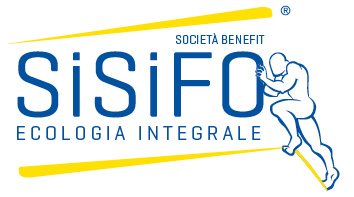
ECONOMY and ECOLOGY are both derived etymologically from the Greek oikos, home; a bond so close that it compels one to take responsibility toward the common home, not as masters, but as responsible stewards.
Just as it is true that no event can have a zero impact, it is also true that, with certain organizational choices, it is possible to significantly reduce the impact of the event by managing the resources in a rational manner, also countering the prevailing culture of waste.
In drafting the event’s Care of Creation Project, reference was made to the SEVEN LAUDATO SI GOALS defined by the platform endorsed by the Dicastery for Promoting Integral Human Development, of which The Economy of Francesco is a member of the Steering Board.
The Committee’s organizational choices toward Integral Ecology are important, but they will not bear fruit without everyone’s contribution: each participant is called upon to do his or her part with some decisive behavior.
ACTIONS FOR THE CARE OF CREATION
EoF’s Care of Creation Project aims primarily to become aware of the impact generated by the different activities. In order to do this, once the perimeter has been limited to the activities in the Seraphic City, using scientific methodologies (ISO standards), the tons of the equivalent CO2 produced are computed.
Even before this – the MERC approach (Measure, Avoid, Reduce, Compensate) – the committee made choices that avoided the emission of several tons of CO2.
Although it is not possible to counteract all the emissions, the Committee decided to become aware of the entire impact generated, by working to reduce it with sustainable actions that will also be a sign for the area hosting the event. At the same time, the Report of the Impact on Creation, which will be produced after the event, can become a useful tool for anyone who needs to organize a church event in the future.
The constant changes of scenario caused by the pandemic, forced the Committee to modify its programs and actions. Thanks to the support of various economic sectors who have decided to support The Economy of Francesco, the following are the Actions for the Care of Creation that we have planned:
ACTION 1: SUSTAINABLE SET-UPS
We will use wood and cardboard to produce items that can be recycled after the event. After the EoF, over 350 PEFC certified pallets will be collected by a local industry and will be used for what they were originally designed.
ACTION 2: REDUCTION OF DISPOSABLE PLASTIC MATERIALS
The environmental impact of disposable plastic materials is well known, and it was the Committee’s intention to eliminate all disposable products throughout the event. In fact, for this purpose, each participant will receive a backpack made of cotton, containing a thermal water bottle and stainless folding cutlery, which can be reused after the event.
As a result of the pandemic, health authorities required that meals be distributed in disposable containers and with disposable cutlery.Thus, we had to modify our plan, no longer mentioning elimination, but drastically reducing disposable materials.
The materials used are biodegradable and compostable, in compliance with the technical standard EN13432 so that they can be collected with the organic fraction and transferred to the composting plant.
ACTION 3: FOOD SERVICE
Food can have many types of impact, not just the environmental one. The Committee’s first choice was to involve the city’s Institute of Hotel Management so that, coordinated by their faculty, the young students would take care of the participants from all over the world.
The second choice was to use raw materials and products from property confiscated from organized crime. Thus, we identified several companies and purchased materials from them, giving preference to those from organic farming. Other foodstuffs were purchased from local establishments.
Honey products will also be distributed; not only to give participants fine products, but also to keep the focus on bees, which are endangered due to pollution and the climate crisis.
Lunch tables were provided by the local establishment Pro Loco and will be returned to them after the event.
ACTION 4: PUSH FOR SEGREGATED WASTE COLLECTION
In all the villages and at the Palaeventi, volunteer-assisted segregated waste collection has been organized for all the collection fractions. To ensure that segregated waste collection turns into effective recycling, the company in charge of collection will provide, through the Town of Assisi, certificates of delivery to the various facilities.
ACTION 5: SUSTAINABLE DIARY
To facilitate personal reflection, a diary made of FSC-certified paper and a pen made of Mater-Bi bioplastic will be given to the participants.
ACTION 6: COMPUTING THE IMPACT
A monitoring system was developed for all EoF activities in Assisi in order to compute, according to ISO standards, the real impact of the event and the amount of equivalent CO2 produced as well as the amount of CO2 avoided, thanks to the Actions for the Care of Creation.
ACTION 7: ACTIONS TO REDUCE THE IMPACT
Once the emissions have been computed, using Sustainability Credits, we will implement a SIGNAL ACTION to reduce the environmental impact of EoF and to leave a mark on the host territory.
Having prepared a specific Care of Creation Project for The Economy of Francesco, in the assessment of ecosystem services quantifiable in tons of CO2 and in the measurement of tree absorption, we proceeded against an accepted standard for the quantification of Ecosystem Services (PEFC Italy) and for the proper management of private funds for the implementation of activities.The Organizing Committee decided to implement the “Project for the Development and Protection of the Forests of the “Eremo delle carceri” (Distant Hermitage of Prayer).
ACTION 8: REPORT ON THE IMPACT
At the end of the event, a Report on the Impact will be made that will provide an overview of what has been achieved, and which might be useful to other organizers of church events. In this report, we will account for both the actions aimed at reducing emissions as well as the follow-up actions to reduce the effects of the emissions produced.
This initiative is meant to signify the commitment to the care of the common home that will not end with the event, but will continue thereafter. On these pages, we will continue to give an update on integral ecology practices as they come to fruition.
Through these best practices, we want to signify and convey the urgent message that there can be no future without caring for our common home.
It is a caring that begins with small daily actions, with informed choices that lead to a judicious and responsible consumption of resources, to the promotion of a circular economic system that values the material and encourages its reuse.
Of no less importance is the adoption of an ethical model of finance, which is far from abuse and speculation, and close to the upliftment of the weakest and most deprived sections of society, as the spirit of St. Francis teaches.
All of these activities were made possible by the Committee’s choices, and the support of the event’s sustainability partners.
WHAT IS LEFT TO BE DONE?
What has been described is just a first, important collective step to help reduce the effects of the climate crisis. In the report we are going to make, we will also indicate how many tons of CO2 remain to be offset, and what actions can each participant do to contribute to these mitigating actions. The experience gained by EoF shall remain as a common good, available to those who will one day be confronted with organizing an event.
Coordinated by Sisifo – Benefit Society, the following organizations (in alphabetical order) have collaborated in the Care of Creation Project of The Economy of Francesco:
ABOCA SPA – SOCIETÀ AGRICOLA
AGENZIA FORESTALE REGIONALE UMBRIA
ALLFOOD
ASSOCARTA
BANCA POPOLARE ETICA
CARTIERE BURGO
CITTÀ DI ASSISI
https://www.comune.assisi.pg.it/
CONAPI
ECAMRICERT – MERIEUX NUTRISCIENCES
ECOCAVE
ECOZEMA – SOCIETÀ BENEFIT
FABRIANO
FONDAZIONE CON IL SUD
https://www.fondazioneconilsud.it/
FONDAZIONE PERUGIA
https://www.fondazionecrpg.com/
FORMAPERTA
FRA’ SOLE
ISTITUTO ALBERGHIERO DI ASSISI
https://www.alberghieroassisi.eu/
LIOMATIC
LUCART
LUCENSIS
NOVAMONT – SOCIETÀ BENEFIT
MARGARITELLI SPA
https://www.margaritelli.com/it/
PAC2000A SOCIETÀ COOPERATIVA
PALM SPA – SOCIETÀ BENEFIT
PALM W&P
PEFC
POLYCART
REGIONE UMBRIA
https://www.regione.umbria.it/home
RI-GENERIAMO – SOCIETÀ BENEFIT
SOFIDEL
SARVEX

